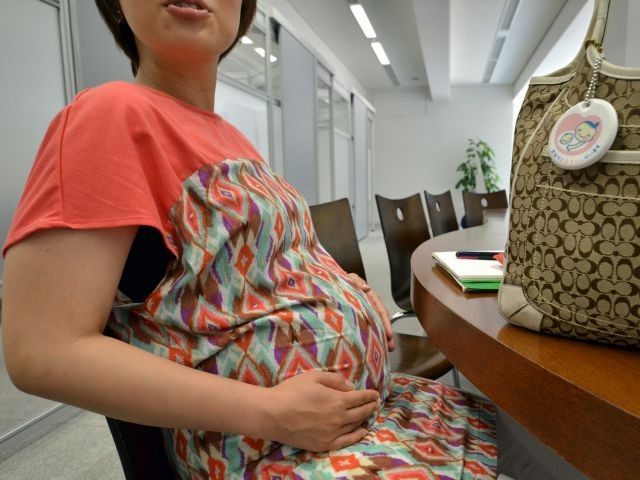Japan’s executives are working the country to its demographic death, by pressuring women to abort their unborn children, according to a new poll.
Rengo, Japan’s biggest trade union confederation, conducted a poll showing that a full 20% of young mothers experience some kind of office harassment, and pregnant workers suffer even greater pressure and abuse. It is not caused by some supposed “patriarchy,” because women colleagues dish out twice as much nastiness towards pregnant women as do male colleagues, the article states.
The pressure is described in the current issue of The Economist. For example, one unnamed woman was hired for a coveted “career-track” job at a large bank along with her boyfriend, who was hired for a different department. When she became pregnant, her boss told her he would “crush” both her own career and that of her boyfriend if she carried the pregnancy to term and had the baby. In 2011, she caved under the pressure and went for an abortion.
Japan’s fertility rate is now only 1.4 births per woman, far below the the 2.2 births required to keep the population stable. Japan’s population is crashing from 127 million in 2015, down to 90 million in 2055. The U.S. rate is 1.88 births per women, and Germany’s rate is a catastrophic 1.38.
Sayaka Osakabe, a woman who blames stress from ill-treatment at work and long working hours for her two miscarriages, has founded a new non-profit firm called MataharaNet to campaign for the rights of pregnant women at work. “Matahara” is a shortened form of “maternity harassment,” a neologism that has come to describe a worrisome trend among Japanese firms.
After her first miscarriage, Osakabe’s boss told her “not to get pregnant again for two or three years and that the workload was not going to kill her.” During her second pregnancy, following doctor’s orders for bed rest but trying to keep up with her heavy workload from home, she was visited by her boss demanding that she resign since her absence was causing “inconvenience.”
The article asserts that other women have had to apologize in front of co-workers for becoming pregnant, while others on insecure part-time contracts find themselves especially vulnerable to being fired while on maternity leave.
A 2013 Japan Times article noted that employers rarely welcome pregnancy among their employees, and that “many bosses wage low-level harassment against new and expecting mothers, dropping repeated snarky comments to make them feel less than welcome.”
In Japan, office workers are expected to stay late even if they have no work to do, and coworkers easily resent those who opt out of this tribulation, such as mothers with young children. Moreover, companies rarely hire substitutes for women on maternity leave, which means that coworkers have to pick up the slack.
According to the 2014 survey comprising 626 respondents from around Japan, 26.3 percent of women reported having experienced maternity harassment, up slightly from the previous year’s figure of 25.6 percent. Also, 27.3 percent said they knew of somebody else who had experienced maternity harassment, again rising slightly from 23.2 percent the previous year.
Complaints about harassment and discrimination related to pregnancy and childbirth have also risen, with the government receiving 18 percent more such complaints in 2014 than six years earlier.
Critics such as Ayako Sono, who was once served on a government panel on education, call matahara a “dirty” term that exaggerates minor social discomforts that Japanese women in the workforce face.
The government, however, has a vested interest in alleviating the harassment, since the country suffers from an inexorable decline in population, which legislators have found themselves impotent to counteract.
Last year the Japanese Supreme Court ruled for the first time on matahara, deciding in favor of a mother who had sued a medical practice in Hiroshima for demoting her.
Prime Minister Shinzo Abe meanwhile has announced his plans to change workforce culture through his “womenomics” program, meant to encourage women’s participation in the world of work. Yet he will have to deal with the fact that some 70 percent of women quit their jobs after having their first child.
A primary cause of this high percentage is–understandably–maternity harassment.
Follow Thomas D. Williams on Twitter @tdwilliamsrome

COMMENTS
Please let us know if you're having issues with commenting.